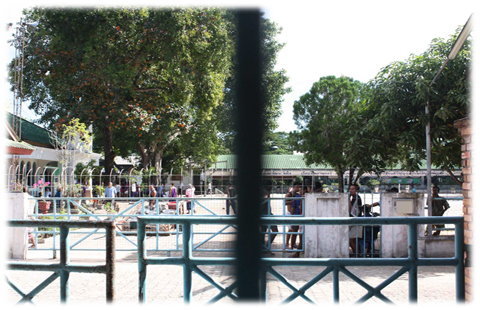Slow justice is no justice

This is the second part of the study on the unrest situation in the three southern border provinces undertaken by Poonyawee Prachuablarp, an assistant judge and a law graduate of Chulalongkorn University.
Looking at the unrest situation in legal perspective, the writer said that law enforcement in the restive region has been inequitably applied especially in legal cases when state officials were accused of committing the offences. In most of such cases, he noted that there was no or little progress of the cases and the accused state officials often were unpunished.
She cited a criminal case in which a paramilitary ranger was accused of shooting to death an employee of the Shinnaworn Yala Company in Yala province. In this particular case, the Muslim community where the victim was a member has lost trust in the justice system because the accused escaped scot free.
In order to win back or earn the trust of the local Muslims towards the justice system, Poonyawee said it was mandatory that the law must be strictly enforced and applied equally without partiality. In case, there were complaints about injustice from relatives or families of the victims, she said the state must show responsibility, apologise and compensate for the damages inflicted upon the victims. And the law enforcers must be told to strictly adhere to the law.
The writer however admitted that equitable enforcement of the law might be easier said than done in actual practice because the Thai society tends to recognize favourtism and nepotism. So when a state official was accused of committing an offence against a local Muslim, the officials who enforced the law were inclined to help his fellow official.
The quest for evidences with the help of forensic science can help do away with cases of wrongful arrest or cases in which suspects were randomly arrested without adequate evidences which, in the end, would mostly result to the acquittals by the court. The writer suggested the setting up of a coordinating centre to verify evidences with the help of forensic science.
There is one notable problem which has made the search for evidences impossible or difficult – that is the Muslim cultural practice requiring a dead person to be buried within a day. On numerous cases, this has made an autopsy impossible. Also, to dig up the body of a Muslim for an autopsy is prohibited.
The writer however noted that this problem had been eased somewhat after there was a consensus among Muslim elders at a seminar held five years ago in Satun that a Muslim body could be exhumed for an autopsy in order to find out the truth of the killing to ensure justice for the victim and the family. However, the exhumation must have the consent of the victim’s family and the consultation of religious leaders. In case the victim could not be identified, the discretion to allow the body to be exhumed for an autopsy rests with the Chula Ratchamontri or the Muslim spiritual leader.
In real practice, the writer noted that there might be some hitches because there is a limited number of religious experts whose consultation is needed and that people were killed on daily basis in the region.
Slow justice is no justice as it was so said. Poonyawee proposed that the number of personnel in the justice system in the deep south must be increased to ease the problem of slow justice or a huge backlog of cases which has resulted to the problem of slow justice. If it is possible, he said the new recruits should include ethnic Malay and also the process of examination of evidences must be speeded up.
The writer referred to a recommendation by Pol Lt-Col Santi Al Idrus that an office of Muslim judiciary should be set up in the restive region to resolve conflicts among Muslims.
Rehabilitation for victims of the unrest situation is necessary especially those who were illegally detained by state officials by virtue of the emergency decree, said the writer.
In conclusion, he said state policy regarding criminal offenders in the far South must take into account the difference in culture, religious beliefs and tradition. Setting a policy without thorough understanding of the root cause or root causes of the unrest problem will not resolve the unrest problem but, on the contrary, will worsen the situation and provoke more resistance against the state, she added.
---------------------------------------------------------------------------------------------------------
Caption : Prison in far South of Thailand
Related story : Problematic justice process in the deep South
